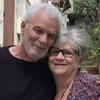
Dinah Ross Jones
Speech-Language Pathologist; Early Childhood Special Educator —
Explain your career path
At graduation I was unsure if I wanted to teach English or provide speech-language therapy. I worked for one school year in the Jackson R-2 School District while my husband finished his degree at SEMO. A move to Phoenix, Arizona, solidified my choice of Speech-Language Pathology. Since I had already completed some dual enrollment classes I returned to SEMO to complete my Master's degree during summer sessions. I graduated from SEMO again in 1978. It was one of the best decisions of my life. Throughout a 40+ year career I was able to explore many venues as a professional. My professional choice allowed me to work in many areas: early childhood, developmental disabilities, neuro-motor disabilities, evaluation and assessment, and most recently - Autism Spectrum Disorders. While I primarily worked in the public school system I also maintained a private practice; provided consultation; worked in clinical settings; and taught extension classes for Northern Arizona University.
What was your major at Southeast and how would you characterize the quality of that program to prospective students?
My undergraduate degree is in Education, but 'speech correction' evolving into Speech Pathology was my major field of study. In 1967-68, freshmen were required to attend a number of convocations led by guest speakers and professors. M.G. Lorberg, the head of the department, presented on communication disorders. He talked about the incredible ability human beings possess to process language and speak or communicate. He explained how some individuals have impairments or difficulties or delays affecting this 'natural' phenomenon, natural but infinitely complex. I was intrigued and decided to make the field my area of study.
Why did you choose to attend Southeast?
I was fortunate to receive a Regent's Award to attend any of the Missouri state colleges. I briefly considered the University of Missouri at Columbia, but at 17, found its size intimidating. SEMO was the right size, the right distance from home in St. Louis, and the right price. There were also a number of my high school classmates attending that fall so my decision wasn't difficult.
Who influenced you most during your time at Southeast?
This is a tough question. There were many influences during my undergraduate years and they were of varying degrees in both positive and negative veins. I believe that's normal during 'coming of age' stages. Dr. John B. Long was a kind and thoughtful professor who awarded me a graduate assistantship following my graduation in 1971. He was an accomplished professional, holding national certifications in both speech pathology and audiology. He guided me toward pursuing the Master's degree. During graduate school - I was very much influenced by Dr. Mary Ann Vogelsang nee Trombetta. She sat on my thesis committee and was my clinical advisor/supervisor. She was articulate, brilliant, and motivating.
Share your best college memory.
There isn't a 'best' college memory. I enjoyed campus life, participating in a sorority and serving in the Student Senate. The cultural sea change occurring during my undergrad years was remarkable. 1967 - co-eds couldn't wear pants or shorts on campus before 4 P.M. By 1970, the fashion of jeans and tee shirts was totally acceptable (not in the communication disorders clinic!). On campus dorms and sorority houses observed curfews for women students until the 'key card' system was instituted in the fall of 1970. I loved downtown Cape with the Main Street shops. I loved the surrounding area, Trail of Tears State Park, Cape Rock, and lovely Capaha Park and its rose garden. I met my husband of 47 years the summer of my junior year and even though I nearly drowned on our second date, floating down the Current River, meeting and marrying him has to take top prize.
If you were in Greek Life, the Honors Program or any other student organization, please tell us about that experience and how it impacted you.
My professional accomplishments aren't necessarily within the sphere of awards or citations or notoriety. They include the best fruits of my profession: facilitating communication among those who are limited in those skills. The successes of my clients and students and relationships with them, their families, and my colleagues are my legacy. It's notable that my only daughter-in-law, my daughter of the heart, earned a Liberal Arts degree from a private midwestern university in 1997. She discovered speech therapy through our relationship and attained her Master's degree in Speech-Language Pathology in 2004. Being a Speech-Language Pathologist remains key to my identity despite retirement in 2015. Loving what I did is the greatest accomplishment anyone could desire.
What is the most important thing you learned while you were at Southeast?
The most important thing I learned relative to my profession: You will never 'know' everything. Ask questions. Do your research. Keep learning. The most important thing I learned relative to life: persistence.
Describe Southeast in three words.
Learning for Life
What advice would you give current students or recent graduates interested in pursuing a career in your professional field?
Speech-Language Pathology is a wonderful profession. Look at social media pages such as Speech Pathologists at Large on Facebook for some insights. Talk to working professionals. Research areas of specific interest since the field has become so varied: public school therapy, clinical therapy for pediatrics, geriatrics, rehab facilities, Autism, voice therapy, feeding therapy, and so on. Does SEMO offer courses and clinical experiences that match your interests? And perhaps most importantly - check on salaries in the professional and geographical areas in which you desire to work. Will the burden of educational loans or cost be adequately met on those salaries? I believe SEMO continues to offer an affordable university education. With the exorbitant costs of a university education this is a critical concern.